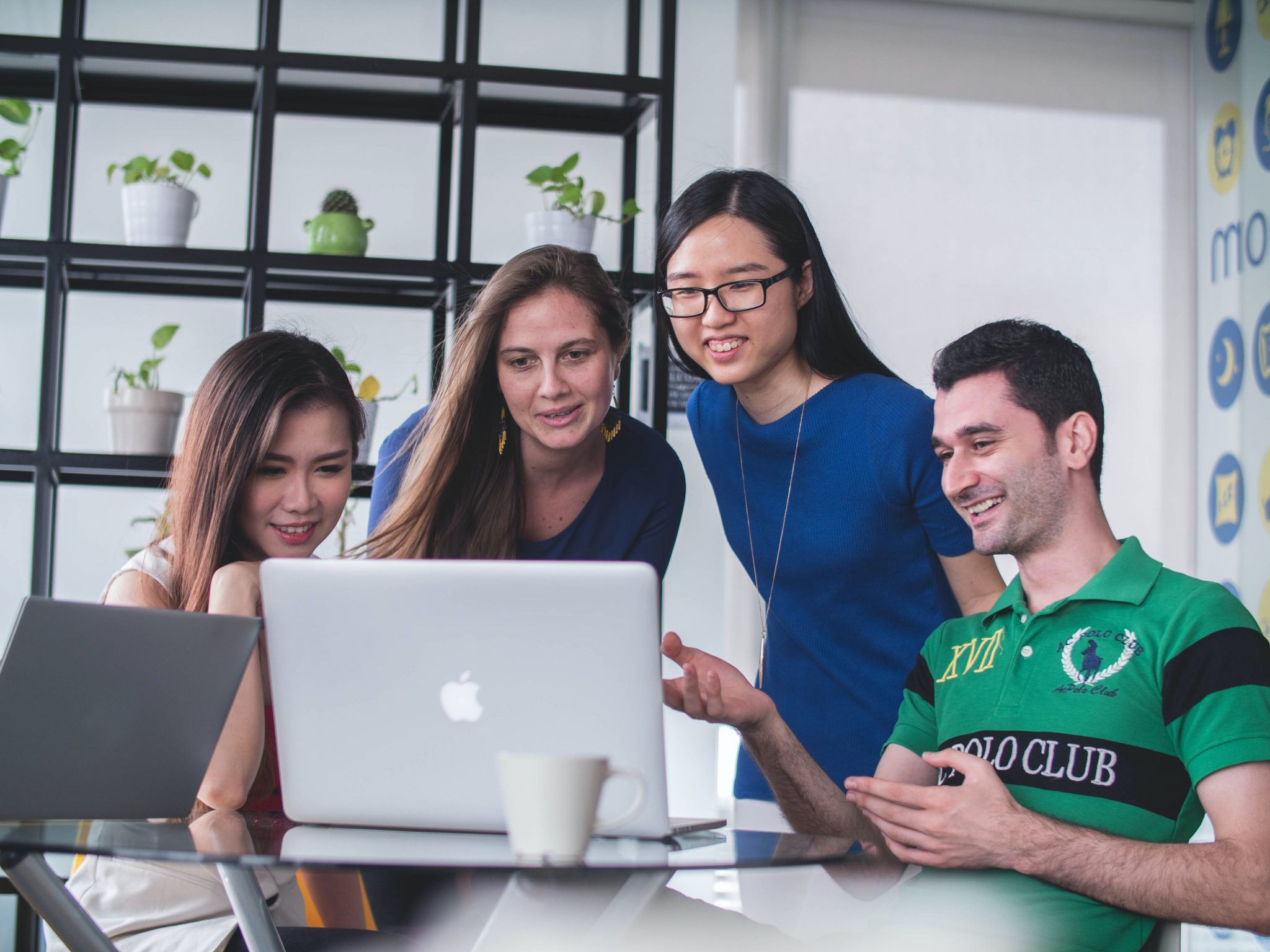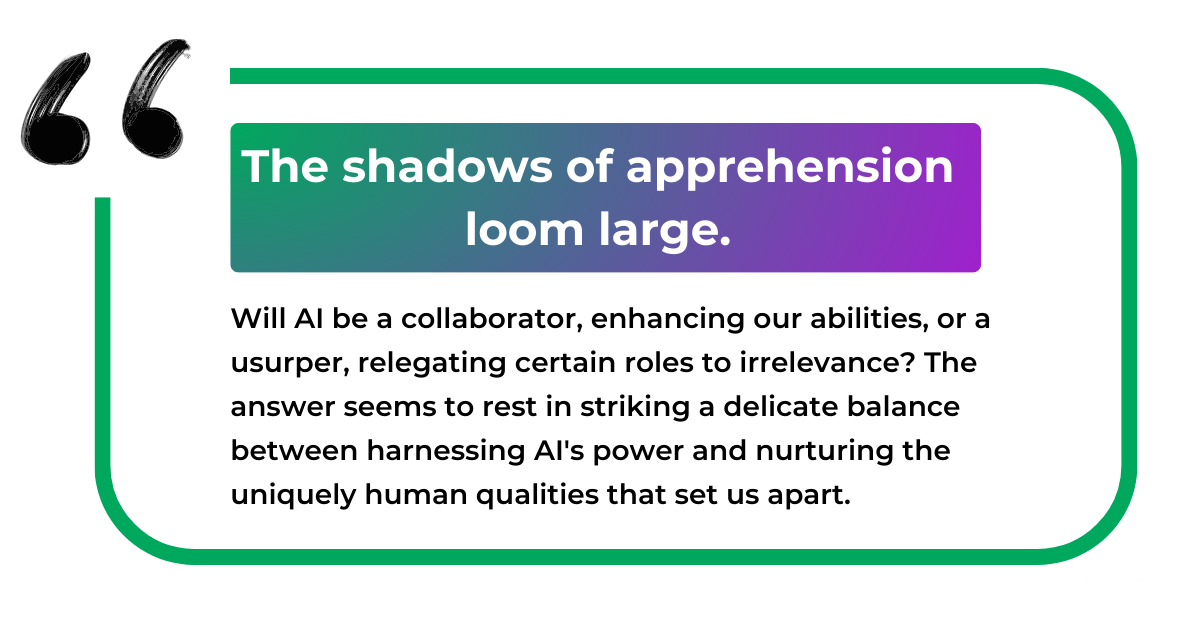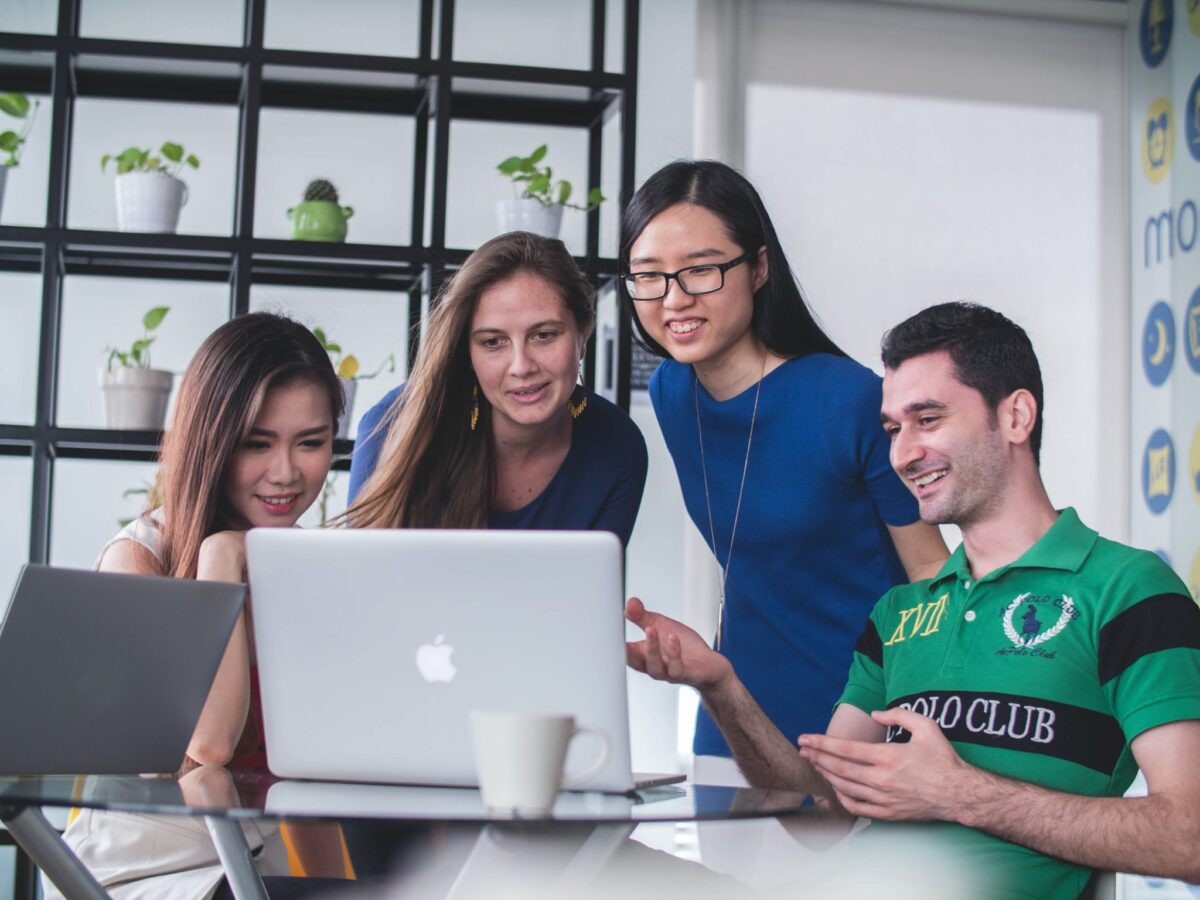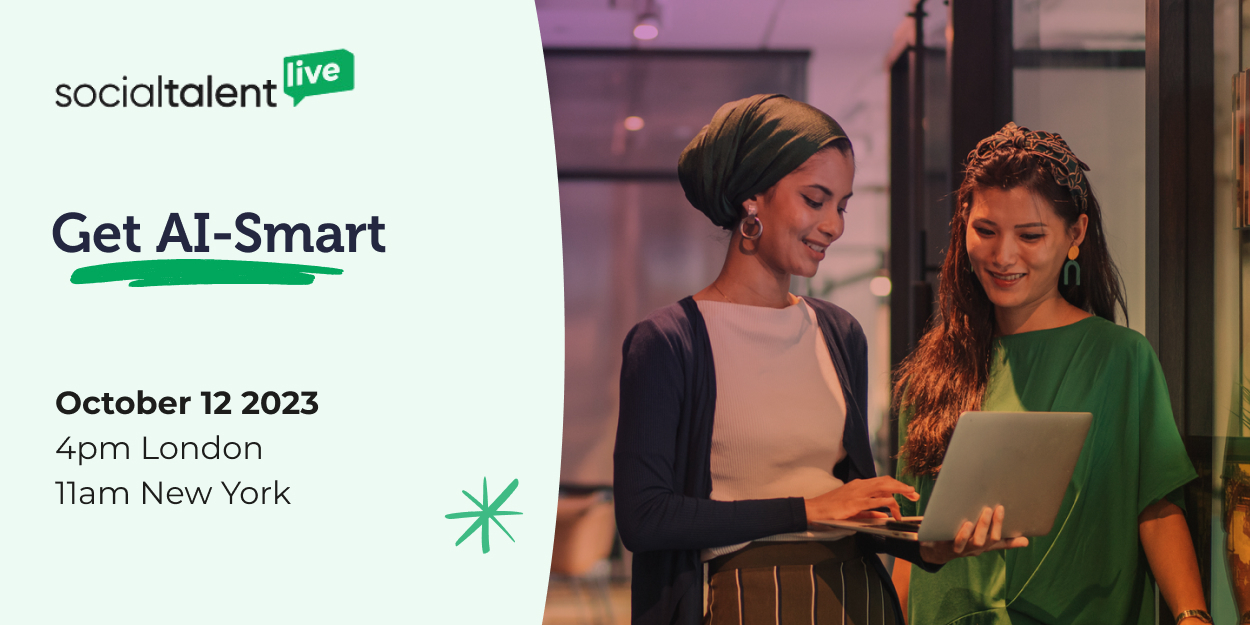Generative AI is everywhere.
How many meetings have now heard the phrase “maybe we could get AI to do this?” How many times have we been stumped by a problem or a task in the workplace only to log into ChatGPT to get some quick assistance? How many emails, articles, and reports have materialized through the ones and zeros of AI?
We’re living in a world where algorithms can now orchestrate tasks with a precision and speed that astounds. And it’s no hyperbole to suggest that the dawn of generative AI is reshaping the landscape of work and revolutionizing the way we discover talent.

But it’s still early days – generative AI has boundless potential to transform any number of processes and roles, but we’re only beginning to understand how. And as our goal at SocialTalent is to help people become work-smart, we felt it was our duty to dive head first into this discussion and examine what the path forward with AI looks like – come join the conversation!
What the Rise of Generative AI in the Workplace Could Mean
Envision a morning where your inbox is meticulously sorted, meetings are seamlessly scheduled, and repetitive tasks are completed before your first sip of coffee. Generative AI has the power to liberate us from the mundane, offering an idyllic future where time-consuming chores are recycled into moments of innovation and creativity.
And the potential impact is truly immense: PwC estimates that by 2030, AI could contribute a staggering $15.7 trillion to the global economy, largely driven by increased productivity. In fact, McKinsey research predicts that AI has the ability to automate activities that absorb as much as 70% of a worker’s time right now – it’s staggering potential!
But it’s not just about numbers. Generative AI represents a paradigm shift in how we perceive and engage with work. In the same way personal computers and the internet fundamentally altered how we work, AI could also enable a seismic transformation.
Yet, the shadows of apprehension loom large. Will AI be a collaborator, enhancing our abilities, or a usurper, relegating certain roles to irrelevance? The answer (at the moment anyway!) seems to rest in striking a delicate balance between harnessing AI’s power and nurturing the uniquely human qualities that set us apart.
Can AI Revolutionize Recruitment?
Hiring is SocialTalent’s bread and butter, so any developments in this sphere are always scrutinized. And while AI has formed a backbone of Talent Acquisition for years now, generative AI, and the speed of adoption, seems to have flipped the script overnight.
From writing Boolean Strings and parsing job descriptions for bias, to assisting in candidate outreach and crafting social media posts, software like ChatGPT has equipped TA folk with an instant personal assistant. Time is a constant complaint for recruiters who often lament the sea of admin that only seems to swell as the years progress – is generative AI the panacea?
Yes and no seems to be the answer right now. On the plus side, there are many benefits:
- Build perfect banks of screening and interviewing questions.
- Craft customized job descriptions.
- Tailor candidate outreach messages.
- Help communicate in different languages.
- Enable industry and market research.
- Write candidate feedback.
Learn more: 5 Essential ChatGPT Prompts for Recruiters
This list could go on. But one of the most intriguing developments comes in its ability to navigate the pervasive issue of bias in hiring. By relying on data-driven insights devoid of human prejudices, it promises a more diverse and inclusive workforce. Harvard Business Review states that:
“AI holds the greatest promise for eliminating bias in hiring for two primary reasons. It can eliminate unconscious human bias, and it can assess the entire pipeline of candidates rather than forcing time-constrained humans to implement biased processes to shrink the pipeline from the start.”
This shift challenges traditional notions of hiring and underscores the potential of AI to reshape not only the composition of the workforce but also the very fabric of corporate culture. Yet, it can’t all be that easy, right?

Navigating the Ethical Crossroads of AI and Recruiting
While AI brings the allure of efficiency, it also beckons a maze of ethical dilemmas. Algorithmic bias, a byproduct of biased training data, can perpetuate societal inequalities. The irony of AI, designed to transcend human prejudices, potentially becoming an amplifier of bias, is a stark reminder of the importance of data curation and ongoing vigilance.
Unearthing and addressing these biases requires a concerted effort to ensure that the algorithms driving AI recruitment are as diverse and unbiased as the world they aim to reflect.
And what about the “human factor” side of things? Soft skills, emotional intelligence, and cultural fit – all quintessential aspects that define us as human beings and elevate the hiring process – can prove elusive for AI assessment. AI cannot, and should not, seek to supplant or unnervingly imitate this.
Combine all this with ever-changing laws, cybersecurity concerns, copyright protections, and privacy issues around the use of generative AI, and you’re left with a murky quagmire of uncertainty. So how do we forge ahead in this dichotomy of potential and problem?
The Symbiotic Dance of AI and Humanity
As we hurtle toward the future of work, embracing the promise of generative AI calls for a strategic blend of optimism and caution. Employees must evolve alongside AI, cultivating new skills that augment rather than supplant their capabilities. Upskilling isn’t just about staying relevant; it’s about leveraging AI as a tool to amplify our innate talents.
Transparency, explainability, and ethical considerations must underpin the integration of AI. Ensuring that AI’s decision-making remains understandable and accountable is paramount as it evolves from a tool to a trusted collaborator in our professional lives. The rise of AI isn’t just a technological advancement; it’s a societal shift that demands a holistic approach, where stakeholders from policymakers to business leaders collaborate to establish ethical guidelines and ensure responsible AI usage.
But big questions still remain, and discussion and exploration will be key to eking out this future. So in this spirit, we’d like to invite you to join our upcoming webinar on this topic:
SocialTalent Live: Get AI-Smart
Taking place on October 12th, 2023, this free online webinar is dedicated to the discussion of AI and its growing impact on recruiting and the future of work. Through a series of panels, fireside chats, and Q&As, you’ll join industry experts and noted thought-leaders as they deep-dive into this pressing topic.
Hear from incredible speakers, such as:
- Cobih Obih, AI Product Manager, Stack Overflow
- Mike Wolford, Director of Analytics, Claro (Wilson HCG)
- Diane Circo, VP of Recruitment, Sprout Social
- Maisha Cannon, Founder of The Collab Lab
- Colleen Rush, Global Head of TA, Merck
- Manjuri Sinha, Global Director Talent Success & DEI, OLX
- Adriano Koshiyama, Co-Chief Executive Officer, Holistic AI
Click here to learn more and sign-up for FREE!
The post AI at Work: Assessing the implications of AI in the workplace and recruiting appeared first on SocialTalent.

